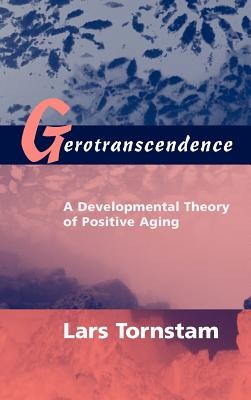
- We will send in 10–14 business days.
- Author: Lars Tornstam
- Publisher: Springer Publishing Company
- ISBN-10: 0826131344
- ISBN-13: 9780826131348
- Format: 15.4 x 23.9 x 1.9 cm, hardcover
- Language: English
- SAVE -10% with code: EXTRA
Reviews
Description
Given the 2006 GREAT GERONTOLOGY AWARD for outstanding contribution to gerontological research by the Swedish Gerontological Society
Received a VALUE GROUND AWARD from the journal Aldreomsorg (Old Age Care)
Expanding upon his earlier writings, Dr. Tornstam's latest book explores the need for new theories in gerontology and sets the stage for the development of his theory of gerotranscendence. This theory was developed to address what the author sees as a perpetual mismatch between present theories in social gerontology and existing empirical data.
The development towards gerotranscendence can involve some overlooked developmental changes that are related to increased life satisfaction, as self-described by individuals. The gerotranscendent individual typically experiences a redefinition of the Self and of relationships to others and a new understanding of fundamental existential questions:
- The individual becomes less self-occupied and at the same time more selective in the choice of social and other activities.
- There is an increased feeling of affinity with past generations and a decreased interest in superfluous social interaction.
- The individual might also experience a decrease in interest in material things and a greater need for solitary "meditation." Positive solitude becomes more important.
- There is also often a feeling of cosmic communion with the spirit of the universe, and a redefinition of time, space, life and death.
Gerotranscendence does NOT imply any state of withdrawal or disengagement, as sometimes erroneously believed. It is not the old disengagement theory in new disguise. Rather, it is a theory that describes a developmental pattern beyond the old dualism of activity and disengagement.
The author supports his theory with insightful qualitative in-depth interviews with older persons and quantitative studies. In addition, Tornstam illustrates the practical implications of the theory of gerotranscendence for professionals working with older adults in care settings. A useful Appendix contains suggestions of how to facilitate personal development toward gerotranscendence.
EXTRA 10 % discount with code: EXTRA
The promotion ends in 17d.15:13:52
The discount code is valid when purchasing from 10 €. Discounts do not stack.
- Author: Lars Tornstam
- Publisher: Springer Publishing Company
- ISBN-10: 0826131344
- ISBN-13: 9780826131348
- Format: 15.4 x 23.9 x 1.9 cm, hardcover
- Language: English English
Given the 2006 GREAT GERONTOLOGY AWARD for outstanding contribution to gerontological research by the Swedish Gerontological Society
Received a VALUE GROUND AWARD from the journal Aldreomsorg (Old Age Care)
Expanding upon his earlier writings, Dr. Tornstam's latest book explores the need for new theories in gerontology and sets the stage for the development of his theory of gerotranscendence. This theory was developed to address what the author sees as a perpetual mismatch between present theories in social gerontology and existing empirical data.
The development towards gerotranscendence can involve some overlooked developmental changes that are related to increased life satisfaction, as self-described by individuals. The gerotranscendent individual typically experiences a redefinition of the Self and of relationships to others and a new understanding of fundamental existential questions:
- The individual becomes less self-occupied and at the same time more selective in the choice of social and other activities.
- There is an increased feeling of affinity with past generations and a decreased interest in superfluous social interaction.
- The individual might also experience a decrease in interest in material things and a greater need for solitary "meditation." Positive solitude becomes more important.
- There is also often a feeling of cosmic communion with the spirit of the universe, and a redefinition of time, space, life and death.
Gerotranscendence does NOT imply any state of withdrawal or disengagement, as sometimes erroneously believed. It is not the old disengagement theory in new disguise. Rather, it is a theory that describes a developmental pattern beyond the old dualism of activity and disengagement.
The author supports his theory with insightful qualitative in-depth interviews with older persons and quantitative studies. In addition, Tornstam illustrates the practical implications of the theory of gerotranscendence for professionals working with older adults in care settings. A useful Appendix contains suggestions of how to facilitate personal development toward gerotranscendence.


Reviews